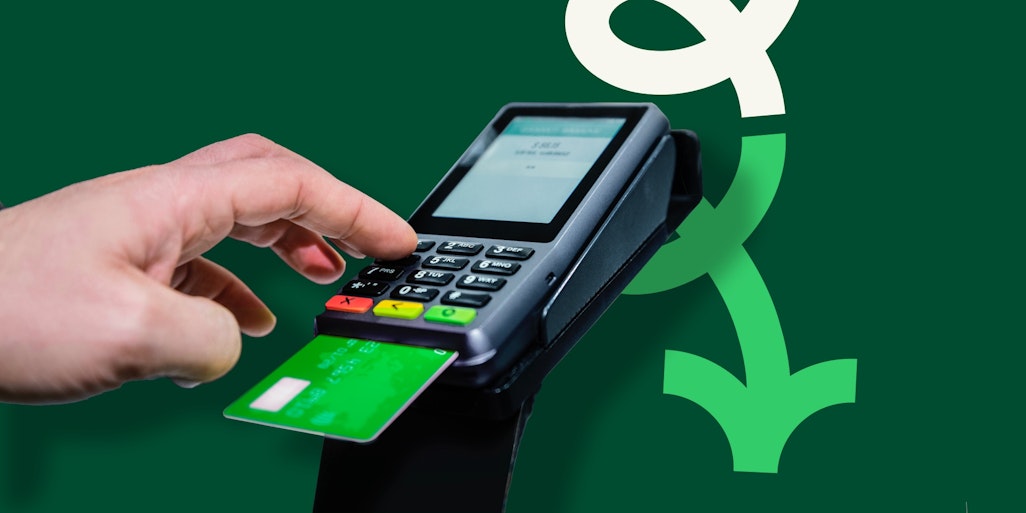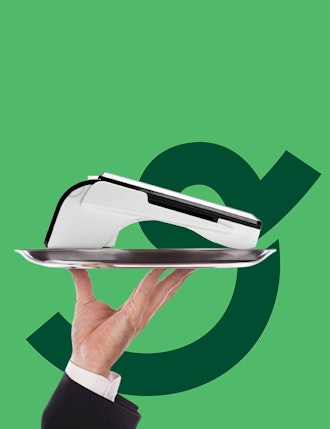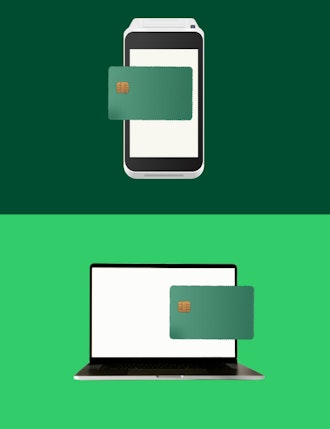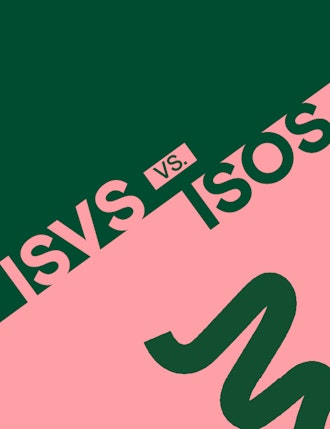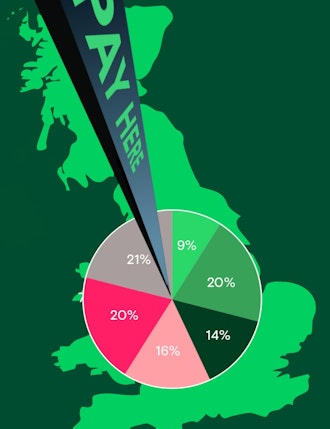To be blunt, the traditional reselling model is becoming obsolete. The concept of reselling - where businesses purchase POS systems from manufacturers or wholesalers and then sell them to consumers - has long been a staple of the retail technology/Independent Sales Organization (ISO) sector. However, the dynamics of the market are evolving, and several factors are contributing to the decline of the reselling model in favor of more innovative approaches.
What’s behind this shift? What are the benefits and drawbacks of owning versus off-the-shelf products? And finally, are there any positives of being a reseller at all?
The three biggest factors leading to the decline of the reselling model
1. Changing consumer preferences
Demand for customization and flexibility: Today's merchants are more discerning and demand POS systems that can be customized to meet their specific needs, with 48% of retailers considering customization and flexibility as top factors when choosing POS systems. Off-the-shelf POS systems often lack the customization options that modern businesses require, driving companies to develop their own solutions or partner directly with developers who can tailor the systems to their needs.
Enhanced user experience: Merchants and consumers alike now expect a seamless and intuitive user experience from their technology solutions. Companies like Square and Shopify have set high standards by offering POS systems with sleek, user-friendly interfaces and robust feature sets. These systems are designed to be easy to set up and use, reducing the need for third-party resellers to provide installation and support services.
2. Technological advancements
Rise of cloud-based POS Systems: Cloud-based POS systems have revolutionized the retail technology world. These systems offer numerous advantages over traditional, on-premises solutions, including real-time data access, automatic updates, and lower maintenance costs. The global cloud POS market is expected to grow to 3.73 billion USD by 2026, at a compound annual growth rate (CAGR) of 22.7%. This growth reflects the increasing adoption of cloud-based solutions, which often bypass traditional resellers.
Unlike traditional POS systems that may require complex installation and configuration by resellers, cloud-based systems can be easily set up and configured by the end-users themselves. This self-service model reduces the dependency on 3rd party resellers.
The same applies to updates and maintenance: with cloud-based systems users receive the latest features and security updates automatically.
Integration capabilities: Modern POS systems are increasingly integrated with other business systems such as inventory management, customer relationship management (CRM), and e-commerce platforms. Companies developing these integrated solutions can offer a seamless, unified experience that is difficult for resellers of standalone systems to match. Businesses prefer integrated solutions because they enhance efficiency and data accuracy, leading to better decision-making and improved customer service.
3. Market dynamics
Direct-to-consumer (DTC) movement: The DTC model is gaining traction in the POS industry. By selling directly to end-users, companies can bypass traditional retail channels and offer their products at more competitive prices while retaining higher profit margins. This model also allows businesses to build closer relationships with their customers, gather direct feedback, and iterate on their products more rapidly.
Increased competition: The POS system market has become highly competitive, with numerous players offering similar products. This saturation often leads to price wars, eroding profit margins for resellers. As manufacturers and developers of POS systems strive to differentiate themselves, they are increasingly focusing on direct sales and strategic partnerships rather than relying on resellers. This trend is squeezing resellers out of the market as margins shrink and competition intensifies.
Comparison of owning vs off-the-shelf POS Systems
Now we understand the reasons behind the decline of the resell model in favor of the shift towards vertical integration, let’s go even more granular and look at the pros and cons of owning POS systems, vs buying off-the-shelf.
Owning POS systems
One of the primary reasons for the decline in the reselling model is the growing trend of ISO companies developing and offering their own POS systems. This vertical integration allows businesses to have greater control over their products, thus being able to improve their customer experience and effectively dominate their own business strategy. Like anything though, there are pros and cons to this strategy:
Pros of owning POS Systems:
- Customization - Businesses can develop POS systems tailored to their specific needs and those of their customers, offering unique features and capabilities.
- Brand control - Companies can establish a stronger brand identity by creating proprietary POS solutions that reflect their values and vision.
- Higher profit margins - By cutting out the middleman, businesses can retain more of the profits, leading to higher margins.
- Agility - Companies can quickly adapt to market trends and customer feedback when they control the development process.
Cons of owning POS Systems:
- High initial investment - Developing and manufacturing POS systems requires significant upfront capital and resources.
- Risk - There's a higher financial risk if the systems fail to meet market expectations.
- Security - Owning POS systems comes with security risks, such as vulnerability to cyberattacks that can lead to data breaches, exposing sensitive customer information like credit card details. Malware and phishing attacks can compromise the system, resulting in financial losses and damage to the business's reputation.
- Complexity - Managing the entire supply chain, from development to support, adds complexity to the business operations.
Buying off-the-shelf POS systems
Off-the-shelf POS systems, on the other hand, refer to ready-made solutions that businesses can purchase and implement directly. While this model has its advantages, it is increasingly being overshadowed by the benefits of owning customized systems.
Pros of off-the-shelf POS systems:
- Lower initial costs - No need for substantial investment in research and development.
- Reduced risk - Companies can choose systems that have already proven successful in the market and comply with security standards.
- Ease of implementation - Faster to market as there is no need to develop the system from scratch.
Cons of off-the-shelf POS systems:
- Limited differentiation - Systems are often generic, making it hard for businesses to stand out in a crowded market.
- Lower margins - Resellers typically earn lower profit margins compared to businesses that develop their own systems.
- Dependency - Businesses are dependent on suppliers for product availability and quality.
The pros and cons of being a POS system reseller
Despite the declining trend, there are still scenarios where the reselling model can be advantageous for POS systems.
Pros of being a POS system reseller:
- Quicker time to market: Reselling off-the-shelf POS systems allows businesses to start selling immediately, bypassing the lengthy development process required for custom solutions. This quick time to market is crucial in staying competitive and meeting immediate customer needs.
- Less operational overheads: Resellers benefit from reduced operational overheads as the original POS system developers handle technical aspects like updates and troubleshooting. This enables resellers to focus on marketing, sales, and customer relationships without the complexities of managing a technology operation.
- Limited investment: Entering the POS market as a reseller requires minimal upfront investment compared to developing a custom system. Costs are mainly focused on inventory (if required), marketing, and sales efforts, making it accessible to a broader range of businesses.
Cons of being a POS system reseller:
- Lack of control and customer service: Resellers have limited control over the product, which can hinder their ability to provide exceptional customer service. Relying on the original developers for updates and fixes can lead to delays and negatively impact the customer experience.
- Limited access to merchant data: Resellers often have limited or no access to merchant data, making it difficult to offer value-added services. This restriction can hurt efforts to increase the lifetime value of the merchant base and limits the ability to tailor services to specific customer needs.
- Non-integrated payment experiences: Using third-party POS systems can result in non-integrated payment experiences, which dilute the overall payment proposition. A fragmented experience can lead to customer dissatisfaction and reduced loyalty.
- Competitiveness challenges: Resellers may find it harder to compete with larger merchants or Independent Software Vendors (ISVs) that offer integrated, custom solutions. The lack of unique features and lower brand differentiation can make it difficult to stand out in a crowded market.
- Lack of flexibility: Off-the-shelf POS systems often lack the flexibility or configuration capabilities that businesses need to address specific requirements. This rigidity can limit the ability to adapt to changing business needs or customer preferences.
So, what’s next?
The decline of the reselling model presents a unique opportunity for ISVs and merchants to forge stronger, more direct relationships and deliver highly tailored POS solutions. By embracing all that new payment technology has to offer, such as the innovations we pioneer here at Aevi, both ISVs and ISOs can position themselves at the forefront of the POS industry, driving growth and maximizing efficiency while also excelling in customer satisfaction.
Interested in reading more around this subject? Here are some useful articles…
